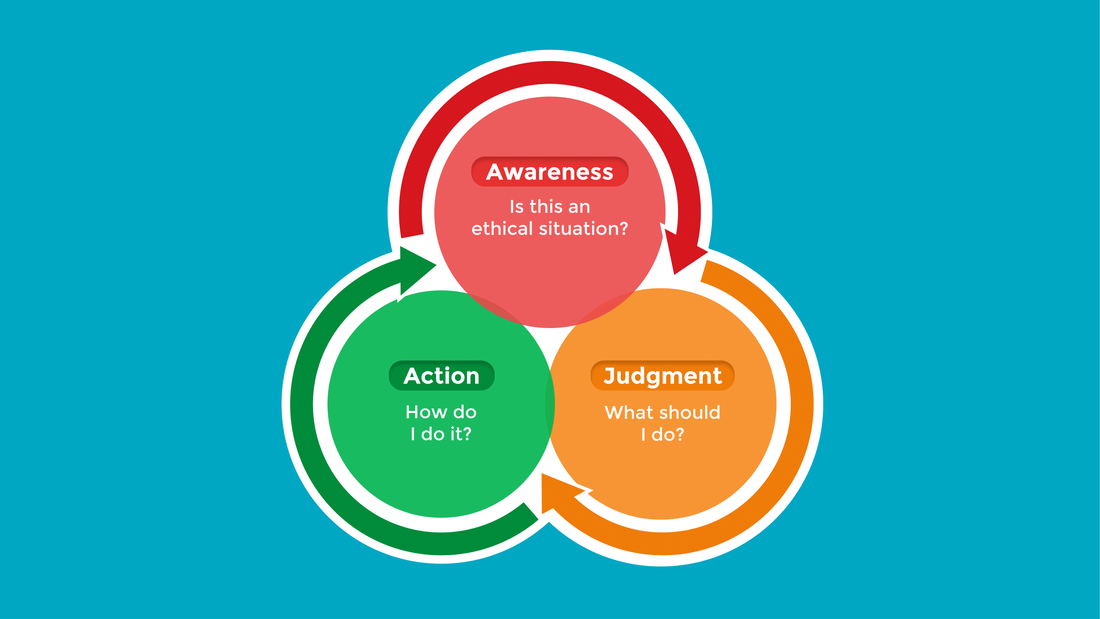SEE
|
Welcome to SEE's Reasoning with Ethics page. The following case and supporting resources (below) are provided to help facilitate class discussions or essay assignments with a focus on ethical reasoning. Ethical reasoning is one factor teachers can encourage for student character formation. Future essays will be available through a link with Character.org. SEE encourages the strategy described in our Reasoning with Ethics resources to be applied beyond current events cases and used to analyze relevant cases in history, literature and life. Current Case |
Cases can be used as
• Class discussion starters • Reading lessons • Essay prompts • Social studies, health or ethics class analysis * See below for link to supporting resources and archived cases |
|
The Reasoning with Ethics Blogger has retired and future essays will intermittently appear in a Character.org newsletter. Visit Character.org for more information.
Is Wokeness Ethical? May 24, 2021 News media are reporting the pushback that intellectuals and politicians in France are displaying to woke philosophy coming from the US. France, the source of the enlightenment, is objecting to the philosophical progeny of their centuries-old philosophical revolution. Defining wokeness can be a challenge, but consider a blend of ideas that include the lessons from the 1619 Project with foundations in critical race theory and its connection to supporting political intersectionality; the demand of language and pronouns defining the new reality articulated by portions of the LGBTQ community; along with cancel culture and its chilling effect on free speech. Supplemental Link:
Wikipedia, Defining Woke— https://en.wikipedia.org/wiki/Woke Daily Wire, France Resists Wokeness-- https://www.dailywire.com/news/france-bans-use-of-woke-gender-neutral-language-in-schools-is-a-danger-for-our-country FeedomWire, France Says America has gone too Woke-- https://freedomwire.com/france-american-wokeness/ The Heritage Foundation, Critical Race Theory-- https://www.heritage.org/civil-rights/report/critical-race-theory-the-new-intolerance-and-its-grip-america New Discourses, A Beginner’s Curriculum on Critical Race Theory-- https://newdiscourses.com/2020/06/beginners-curriculum-critical-race-theory/ The Conversation, Why you should think twice before you talk about “the LGBT community”-- https://theconversation.com/why-you-should-think-twice-before-you-talk-about-the-lgbt-community-81711 First Things, Is there an LGBT “Community”-- https://www.firstthings.com/blogs/firstthoughts/2016/04/is-there-an-lgbt-community |
Some may take issue with the broad spectrum of this definition, but these ideas/philosophies and social codes are sweeping across the US culture. Many people are just recognizing the movement and others are still not yet aware of how wokeness has taken hold of a meaningful part of a major political party, big tech, multi-national companies, and legacy media. Some account for the roots of this cultural change from post-Marxist ideologies which have percolated in US social science academia for 60 years.
Those claiming to be woke would also identify themselves as progressives with a moral claim to re-norming the whole of US society. They would argue that the US was founded and sustained in unjust ways and believe wokeness is part of the arc of history bending to justice. This is an enormous topic and depending on the woke philosophy one believes in will influence how every academic topic will be taught in schools. |
Wokeness deserves time for consideration and evaluation by teachers and students in its academic content and ethical claims.
Earlier blogs have raised questions about the veracity of the history authored by the 1619 Project and the hazards of progressives’ goals to restrict free speech. Students are asked to consider their summer reading to include background, text, and commentary on critical race theory as the philosophical support for the 1619 Project. In a separate focus, students should also become aware of the debates within the LGBTQ “community”.
Ethical questions that apply to the woke synthesis suggested here could include: Does it advance justice to implement policies to favor specific racial groups because of past injustices? Is it true and fair to label any racial group as inherently racist with the associated social penalties?
Finally, is it the government or employers’ responsibility and appropriate authority to insist on certain speech codes that violate the beliefs and science of others?
Earlier blogs have raised questions about the veracity of the history authored by the 1619 Project and the hazards of progressives’ goals to restrict free speech. Students are asked to consider their summer reading to include background, text, and commentary on critical race theory as the philosophical support for the 1619 Project. In a separate focus, students should also become aware of the debates within the LGBTQ “community”.
Ethical questions that apply to the woke synthesis suggested here could include: Does it advance justice to implement policies to favor specific racial groups because of past injustices? Is it true and fair to label any racial group as inherently racist with the associated social penalties?
Finally, is it the government or employers’ responsibility and appropriate authority to insist on certain speech codes that violate the beliefs and science of others?
Thoughts on the case? We want to hear them!
Comments should include response to blog questions with specific reference to analysis using core values.
Ethics in action creates character


